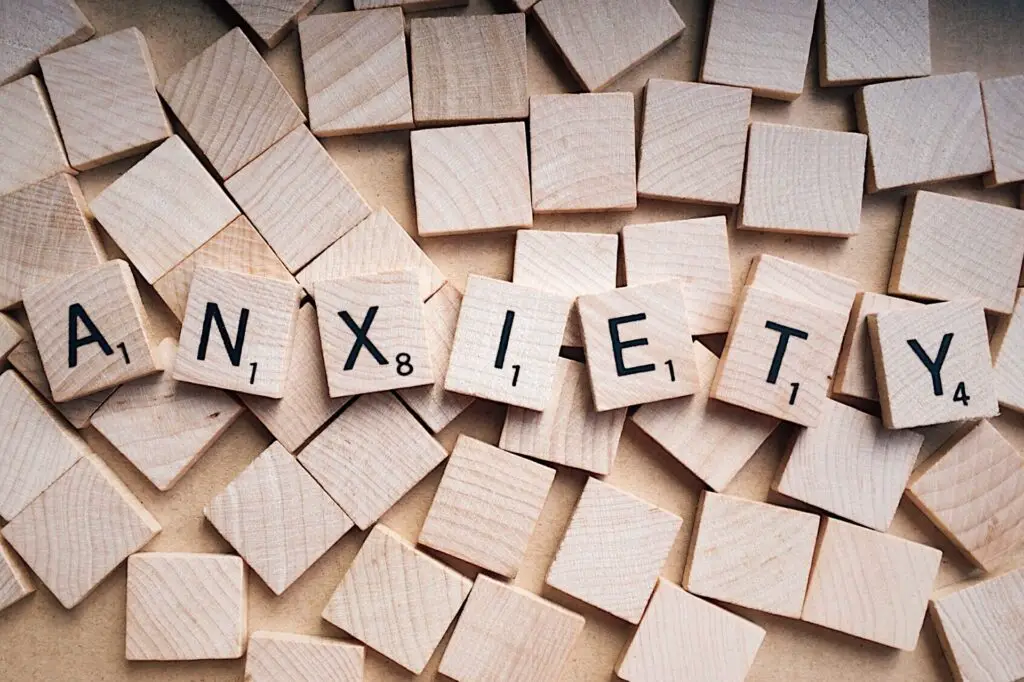Excessive noise pollution can have negative impacts on physical and mental health, and one of the most common sources of noise pollution is from noisy neighbours. Sadly, I have heard too many people say ‘my neighbours noise is making me ill’ and if you are feeling the same, you need to take action.
Noisy neighbours can create a living nightmare and can quickly take over your life. If you’re experiencing excessive noise from neighbours, it’s important to address the problem to protect your health and well-being.
This blog post will explore the issue of noise pollution from neighbours and provide practical tips and advice for protecting yourself from excessive noise. It will cover the types and impacts of noise pollution, as well as noise pollution laws in the UK.
The post will also provide strategies for dealing with noisy neighbours, including soundproofing, wearing earplugs or noise-cancelling headphones, and relocation as a last resort.
By the end of the post, you should have a better understanding of how to protect yourself from noise pollution and maintain good health and well-being.
Cause of Noise Pollution
Various causes of noise pollution can impact your health and well-being. Noisy neighbours are the most common source of noise complaints, and it can be especially frustrating because your neighbours have control over the amount of noise they make. The different types of noise pollution include:
Residential Noise Pollution: This type of noise pollution is caused by noise from residential areas, such as loud music, barking dogs, or noisy neighbours. It can be particularly challenging for individuals living in urban areas. This is usually the main source of noise that causes individuals to feel ill.
Industrial Noise Pollution: Industrial noise pollution is caused by noise from factories, construction sites, and heavy machinery. Workers in these environments are at risk of hearing loss and other health problems if they’re not adequately protected. There are different regulations in place to monitor and deal with noise from businesses.
Transportation Noise Pollution: This type of noise pollution is caused by noise from transportation sources, such as airplanes, trains, and cars. It can be particularly problematic for individuals living near highways, airports, or train tracks.
Consistent impact sounds are usually the type of noise pollution that lead to more serious health issues. Impact sounds include banging, pounding and thudding and these are generally worse than hearing neighbours music and talking.
Consistent exposure to any of the above types of noise can impact your health and make you feel ill.
If you are starting to feel like your health is affected by the neighbours noise, you need to take action before it gets worse.

Impact of Noise on Health and Well-being
Long-term exposure to noise pollution can lead to different health issues such as hearing loss, cardiovascular disease, and sleep disturbances. It can also cause stress, anxiety, and other mental health issues.
Excessive noise from neighbours can affect your mental health and can cause you to feel ill. Here are some of the potential effects:
- Sleep disruption: Loud noise can disrupt your sleep and cause sleep disturbances. This can lead to fatigue, difficulty concentrating and decreased productivity.
- Stress: Prolonged exposure to loud noise can cause stress and anxiety. This can have negative impacts on your mental and physical health.
- Hearing damage: Long-term exposure to loud noise can cause hearing damage and lead to hearing loss.
- Cardiovascular disease: Studies have found that exposure to excessive noise can increase the risk of cardiovascular diseases, such as hypertension and coronary artery disease.
- Headaches: Loud noise can trigger headaches, particularly in those who are prone to migraines.
- Negative impact on quality of life: Living in a noisy environment can decrease your quality of life and affect your relationships with others.
- Depression and anxiety: With a combination of sleep deprivation and high-stress levels can result in depression and anxiety. Sadly, noisy neighbours affecting mental health is more common than you think.
Environmental Protection UK has some further information on the health issues that can be caused by exposure to excessive noise.
If you feel that your mental health is at risk and your neighbours noise is making you ill, you must seek advice from a medical professional.

Understanding Noise Pollution Laws In The UK
If you are currently having issues with noisy neighbours, it is helpful for you to understand the relevant noise pollution laws in the UK:
Environmental Protection Act 1990
The Environmental Protection Act 1990 is the primary legislation governing noise pollution in the UK. It sets out the legal framework for controlling noise pollution and gives local authorities the power to issue noise abatement notices to individuals and businesses that are causing excessive noise.
Noise Act 1996
Provides measures to address issues related to noise pollution, which can be relevant in cases where neighbour disputes involve issues related to noise levels or disturbances.
I have a separate blog summarising the Noise Act 1996 that might be of interest. You can read it here.
Noise and Statutory Nuisance Act 1993
Provides measures to address issues related to noise and other nuisances that may arise from neighbour disputes.
Control of Pollution Act 1974
The Control of Pollution Act 1974 is another important piece of legislation that regulates noise pollution. It gives local authorities the power to take action against noise pollution from construction sites, industrial plants, and other sources.
Local Authority Noise Abatement
Local authorities are responsible for enforcing noise pollution laws in the UK. They have the power to issue noise abatement notices to individuals and businesses that are causing excessive noise. If the notice is not complied with, legal action can be taken.
Steps To Take When Dealing With Noisy Neighbours
If you find yourself saying “my neighbours noise is making me ill”, then you need to do something about it. Your health should be your number one priority.
Here are some steps you can take to address the issue:
- Talk to your neighbour: Try to have a polite conversation with your neighbour about the noise issue. They may not be aware that their noise is causing a disturbance. Approach the situation calmly and explain how the noise is affecting you. Be specific about the type of noise, the time it occurs and how it affects you. You could follow this up with a letter. I have a sample letter that I have drafted that you can read here.
- Contact your landlord or property management: If you live in a rental property, reach out to your landlord or property management company to see if they can help address the issue. They may have specific policies in place to deal with noise complaints.
- Consider mediation: If you’re having trouble resolving the issue with your neighbour, you may want to consider mediation. A mediator can facilitate a conversation between you and your neighbour to find a solution that works for everyone. You can get free and quick quotes from Bark.com from local mediators.
- Keep a noise log: Document the times and duration of the noise disturbance in a notebook. This can help you provide specific information to the council if you need to make a noise complaint. Here is a guide to collecting evidence for a neighbour dispute, that I hope will be helpful.
- Contact the council: If the noise is extreme and continues to be a problem, you can contact your council, to make a noise complaint against your neighbour. They may be able to take action to reduce the noise level. I have a guide detailing how to complain about a neighbour to the council. You have a right to enjoy your home and your council must investigate the noise if it is unreasonable.
- Legal Advice: If you have tried the above and the issues haven’t been resolved, then you may need to seek legal advice. I usually say that legal action should be a last resort, but if your health is at stake, then it might be time to contact a solicitor. I have an article on when to instruct a solicitor in a neighbour dispute, that will hopefully be helpful.
“My neighbours noise is making me ill” – How To Protect Yourself From Noise Pollution
As we have established, exposure to noise pollution can harm your health, physical and mental and cause a significant amount of stress. Fortunately, there are several ways you can protect yourself from the harmful effects of noise pollution.
By reducing noise levels in your environment, you can improve your quality of life and reduce the risk of health problems associated with noise pollution.
In this section, we’ll explore effective methods for reducing noise pollution in your environment:
Soundproofing Your Home
If you’re experiencing excessive noise from neighbours, soundproofing your home can be an effective solution.
This involves adding materials to walls, ceilings, and floors to absorb and reduce noise.
Common soundproofing materials include mass-loaded vinyl, acoustic foam, and sound-absorbing curtains.
Soundproofing can be effective in blocking out noise if done properly. However, soundproofing can be expensive and may not be possible in all living situations.
Wearing Earplugs
Earplugs can be an inexpensive and easy way to protect yourself from excessive noise.
They work by blocking sound waves from entering your ears.
Earplugs come in different types and materials, such as foam, silicone, or wax. It’s important to choose earplugs that fit properly and don’t cause discomfort.
Loop earplugs are highly rated, you can find out more about them on Amazon.

Noise-Cancelling Headphones or Ear Defenders
Noise-cancelling headphones are another effective way to protect yourself from noise pollution. They work by actively cancelling out external noise with sound waves of their own.
Noise-cancelling headphones can be expensive, but they provide high-quality sound and are useful for many different situations, such as commuting or working in a noisy environment.
I have the Beats Wireless Bluetooth Noise-Cancelling Headphones that I bought when I lived in a shared house.
Yes, they are an investment but they worked wonders and helped me sleep and concentrate when the house was noisy. Personally, sleep is important to me and so they were well worth the money.
I used to put an audiobook on from Audible (link to 30 day free trial) and they helped me sleep through the noise.
There are also some great books that guide you through dealing with stressful situations, such as noisy neighbours.
Ear defenders can also help block out noise.
I do have an separate blog on the top noise-cancelling headphones for noisy neighbours that you can read here.
Create Your Own Noise
Some individuals find that creating their own noise helps cover up the neighbours noise and stops you focussing on the nuisance noise.
You could try a dehumidifier, fan or white noise machine to muffle the noise.

Relocation as a Last Resort
If you’ve exhausted all other options and have tried mediation, going to the council and seeking legal advice and the noise is still unbearable, relocation may be the only solution.
I loathe writing this, as I hate the thought that inconsiderate neighbours push people out of their homes, but if your health is impacted then it may be a last resort.
Moving to a quieter neighbourhood or a higher floor in a building can significantly reduce noise pollution.
However, moving can be a costly and disruptive process, and it’s important to carefully consider all factors before making a decision.

How Can I Deal With Stress From Noisy Neighbours
Dealing with excessive noise from neighbours can take over your life, very quickly. When I had an issue with a noisy neighbour in the past, I found that it was all I thought about and I started to anticipate the noise, which was quite consuming and not healthy.
Here are some strategies that I found helped me to manage the stress of noisy neighbours:
- Practice relaxation techniques:
Deep breathing, meditation, yoga, and other relaxation techniques can help you calm your mind and reduce stress. Relax Melodies and Headspace app might help.
- Exercise regularly:
Exercise releases endorphins that can help reduce stress and improve your mood. It will also get you out of the house, reducing the amount of time you are exposed to the noise.
- Get enough sleep:
Adequate sleep is essential for reducing stress and improving overall health. Try to maintain a regular sleep schedule and create a sleep-friendly environment. I appreciate that this can be difficult if your neighbours make noise at night.
- Seek support:
Talk to friends, family, or a mental health professional/doctor about your stress. They can provide emotional support and help you develop coping strategies.
- Practice self-care:
Take time for yourself to do things you enjoy, such as reading, listening to music, or taking a relaxing bath. Engage in activities that bring you joy and help you relax.
- Consider therapy:
If the noise is causing significant distress, consider speaking with a mental health professional/therapist. They can provide strategies to help you manage your stress and improve your well-being. You can get quick and free quotes for therapy on Bark.com. I have personally used bark to get quotes and highly recommend it.

Please note that I am not medically qualified and you should seek advice from your GP about your health.
It’s important to take care of yourself and address the issue as soon as possible. Taking action can help you reduce stress, as it will hopefully provide you with some hope of resolving the issue and provide an action plan.
Conclusion
In conclusion, excessive noise pollution from neighbours can have a serious impact on your mental health and well-being. The constant noise can lead to stress, anxiety, sleep disturbances, and other physical health issues. A
s we have seen in this post, there are several strategies you can use to protect yourself from noise pollution, including soundproofing your home, wearing earplugs or noise-cancelling headphones, and even relocating as a last resort.
It’s important to be aware of noise pollution laws in your area and report any excessive noise to your local authority. Remember, you have a right to a peaceful and healthy living environment. So, if you find yourself saying “my neighbours noise is making me ill”, take action to protect your health.





Leave a Reply